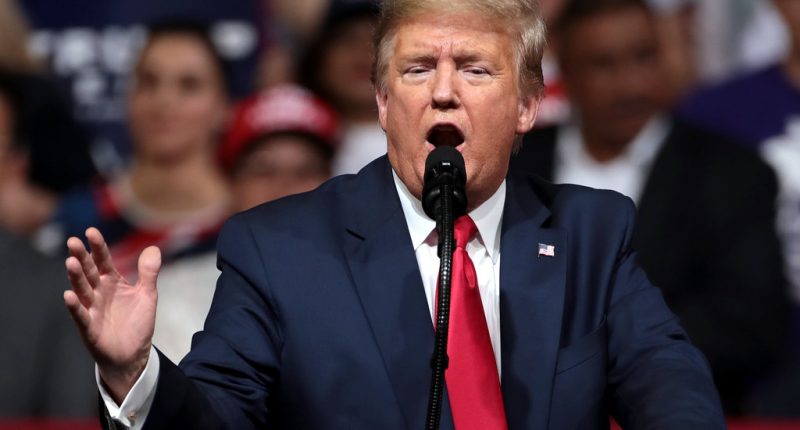US President Donald Trump’s relations with social media are continuing to get sour. Facebook and Twitter on Monday, the eve of U.S Presidential elections, flagged certain posts made by Trump, for allegedly spreading misinformation. The posts that were flagged claimed that the U.S Supreme Court decision on mail-in voting in Pennsylvania lead to “rampant” fraud and was “very dangerous.”
Social media companies have come under fire several times for not doing enough to stop misinformation from spreading, especially during elections in the U.S. But ever since the US Government and Congress have started to tighten their grip on these companies, they are suddenly taking their role in how people are influenced by their platforms, very seriously. And while Twitter has been flagging misinformation tweets for some time now, it is good to see some government litigation prompting Facebook to do that as well.
In this recent flagging, Twitter has hidden Trump’s tweet and has flagged it with the caution message “disputed” and “might be misleading.” It also restricted users from retweeting it, and stopped recommending it to its users through its algorithm. Facebook, on the other hand, chose to add a disclaimer to the president’s post which said that voting by mail and voting in person have a “history of trustworthiness” in the United States, and voter fraud is extremely rare.
However, the Facebook post had already been shared 4,200 times, and the tweet had already reached a large number of people. Trump’s tweet had been retweeted 55K+ times and favorited 126K+ times by the time it was flagged.
The Election Integrity Partnership research group account on twitter pointed out that president Trump’s tweet was taken down 40 minutes after it was tweeted, and said that it would be wise to pick up the pace, suggesting that Twitter needs to take action much quicker.
Due to the ongoing Covid-19 pandemic, U.S is expecting a high number of mail-in votes. Trump and his allies have been very vocal about their views on mail-in voting. They have said that mail-in voting not reliable and can lead to fraud, but the claims so far have been without any strong evidence to back them up. The election experts say otherwise, pointing out that fraud is rare in U.S elections. Last week, the U.S Supreme Court allowed deadlines to be extended for receiving mail-in ballots in Tuesday’s election in Pennsylvania and North Carolina.
The CEOs of Facebook, Google and Twitter testified before the Senate on 28th Oct. The hearing was mainly centered around Article 230, which protects the companies form the liability of the content posted on their platforms by other users. During the hearing the big tech companies were questioned about their censorship rules. Twitter and Facebook were accused of selective censorship, which they both denied.
To be both vigilant and remain unbiased is an extremely difficult task which the social media companies face. Misinformation can spread like wildfire and can have real-life consequences if not properly regulated. This has become a crucial task for the companies especially during the presidential election, when both the pressure and the stakes are high.
The Tech Portal is published by Blue Box Media Private Limited. Our investors have no influence over our reporting. Read our full Ownership and Funding Disclosure →






